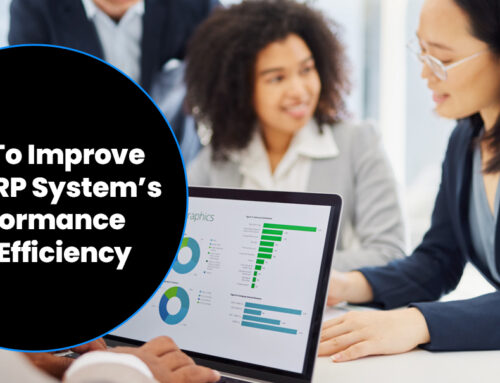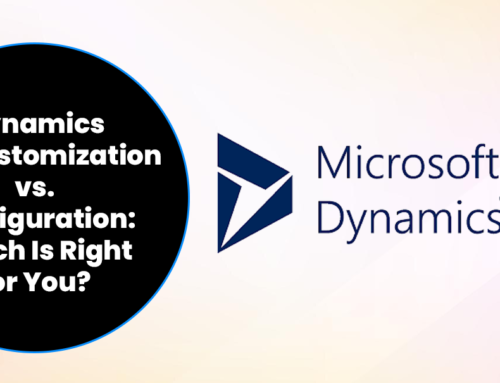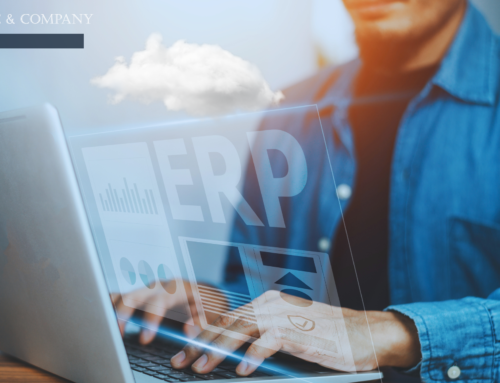
The rise of cloud technology has led to a multitude of cloud-based enterprise resource planning (ERP) software platforms. This changed the ERP landscape in some dramatic ways. ERP software long existed within the exclusive domain of “big business” — large enterprises and big corporations — due to the cost associated with operating an on-premise data center. But cloud technology changed that, shifting ERP software into a position where it is now within financial reach of virtually any company, from startups and small businesses, to midsize enterprises and beyond.
There are many advantages and benefits of cloud-based ERP software platforms, but there are also a few challenges that you must be prepared to encounter. Fortunately, most will find that these cloud-based ERP challenges fall into the category of “dealable,” meaning companies can effectively address the challenge in a way that allows for the establishment of a productive enterprise software platform.
Cloud-based ERP Security Challenges
The cloud is inherently more vulnerable to security breaches due to the fact that it is accessible to anyone with an internet connection. Unlike an on-premise ERP platform — where you can quite literally isolate the entire system from the rest of the world — cloud-based ERP systems are a bit more prone.
That said, cloud technology has always faced challenges surrounding security and as such, it has fueled the development of more robust security measures. Today, cloud-based platforms are amongst the most secure systems you will find on the market. The standard stock security measures found on the typical cloud-based ERP platform are sufficient for most companies. But there are some companies in especially vulnerable sectors — such as the financial sector — that may require additional security that extends above and beyond what is typically offered for cloud-based ERP systems. There is some variation amongst cloud ERP platforms when it comes to their willingness and ability to allow for the implementation of additional security measures. This is an issue you will want to address with a vendor before you choose an ERP platform.
Cloud-Based ERP Challenges Surrounding Updates and Maintenance
Cloud ERP software is made available using a software-as-a-service (SaaS) type of configuration. The vendor controls, maintains and updates the software, which “lives” on their platform. You simply access the software via an online portal. This is very different from the alternative: an on-premise ERP platform where you purchase, own and fully control the software, which runs on your hardware.
It’s possible you’ll encounter challenges surrounding ERP software updates, which can be performed at any time. You may not have time to provide additional user training if the platform undergoes updates. It’s also possible that you will have some downtime during the update process, but you won’t have any control over when that downtime occurs. There really is no way to sidestep this challenge, although some vendors will provide alerts to notify users of planned updates and maintenance. Generally, maintenance and updates are performed during off-peak hours to minimize disruption.
Cloud-based ERP Challenges Surrounding User Training
You don’t want to make employees feel as though they’ve had the digital rug pulled out from under them, which means that you will need lots of preparation. It is reasonable to expect a few user training challenges as you prepare to deploy a cloud-based ERP platform. User training is a crucial component of the ERP rollout process because you need to ensure that users have the knowledge and skills required to make the most of the new enterprise software system.
User training can be rather complex due to the sheer number of different functionalities and features. You can think of an ERP platform as multiple mini software systems rolled into a single interface. The workings of the accounting module will be very different from the inventory management module. This means you will need to conduct multiple training sessions — one for each module and/or user type. It is important that you plan ahead for these training sessions to ensure that everyone is well-trained by the time deployment day arrives. What’s more, you will need to ensure that operations are not interrupted by training. This can turn scheduling into a rather significant challenge.
Additionally, you must consider that humans are creatures of habit and as such, we tend to be resistant to change. Expect some challenges when it comes to users’ willingness to embrace this new system. It’s very normal to experience a sense of reluctance when switching to a new cloud-based ERP software platform. Reassurance can come in the form of a superuser — an individual in a leadership role who undergoes advanced training and then supports fellow colleagues when they encounter issues during training and after deployment. Superusers are very effective at helping to overcome this challenge.
Human Error and the Use of Cloud ERP Backups
Human error is another challenge to consider. Users are going to make mistakes as they learn the ropes so training should be performed in a secondary ERP environment. When the new enterprise software is finally deployed, it is prudent to configure your system to accommodate continual, real-time backups to the cloud. This way, if a significant error does occur, you have a good recovery option — one that won’t result in a significant backslide or work loss.
Cloud ERP Challenges Surrounding Connectivity
Cloud-based ERP platforms require an internet connection for access and in some instances, this can be problematic if you’re in a dead zone. A company that lacks a stable internet connection will experience periods of time when they cannot access their enterprise software systems. This represents a tremendous problem if the ERP platform is mission-critical — and it virtually always is. Fortunately, though, a majority of businesses have stable internet access and as a result, they’ll never encounter this particular challenge.
Cloud ERP systems are the preferred option today and most would agree that cloud-based enterprise software brings far more “pros” than “cons.” At Cox-Little, we have lots of experience helping clients choose the best cloud ERP software platform for their needs. We know what it takes to see the maximum benefit and ROI. Contact Cox-Little today to select a cloud-based ERP platform. We’ll help you confront any challenges that arise along the way, leading to a smooth deployment and maximum ROI.





